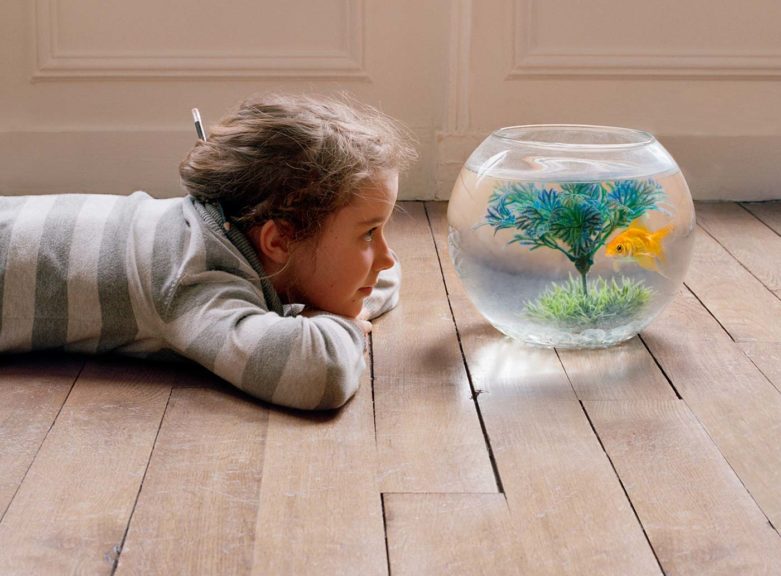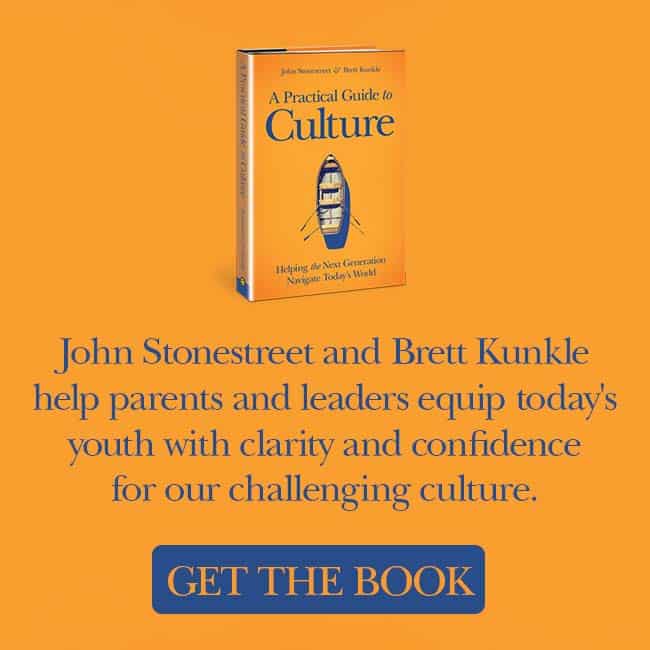This video was created specifically for the Winter series of the Children’s & Family Ministry Network events to affirm or awaken children’s pastors to where your children and families are living TODAY!
Baseline theory followed by John’s antidotes will give you answers for your ministry and material to share with your families. As thought leaders we all must be students of culture. This video is worth watching!
Transcript:
So I’m the dad of 4 kids, and—like all dads who follow Jesus—I want my kids to follow Jesus. I want them to know God. I want them to love God. I want them to obey God and trust God.
And that would be hard enough if I were just trying to help them know God in a vacuum, right? If there were no other forces. Because I mean, you know this—kids think for themselves.
I guess I had some sort of Pollyannaish idea as a young dad that I would just tell my kids what to think about God and morality and Christianity, and they’d naturally just think that way.
The Power of Culture
I learned really early that they didn’t. That that wasn’t the case.
I have 3 daughters, and when my oldest daughter was just 3 years old, she was helping my wife tuck her little sister into bed. I was traveling this particular evening.
But my wife told me that Abigail—my oldest daughter—leaned in, looked at her little sister, and said, “God will be with you tonight, Anna. God will be with you.”
Which was super sweet. But then she turned to my wife and said, “Mommy, I told Anna that God would be with her and the other God will be with me.”
And I thought, “Oh no! How did my 3-year-old become a polytheist, right?”
I mean she thinks for herself. It would be hard enough to help our kids know God if we were just doing it in a vacuum.
But as we all know, it’s not just helping them know and follow God as independent image bearers of God with their own thinking and feeling. We’re doing it in the context of this cultural moment.
In other words, we’re doing it at a time when there are all kinds of other outside pressures on the process.
And all of us who are trying to disciple the next generation feel that.
And that’s why it’s essential that we not only know what God’s Word teaches, but we also know what’s happening in our culture—what the forces of the world are doing to put pressure on the hearts and minds of the next generation.
It’s essential that we not only know what God’s Word teaches, but we also know what’s happening in our culture.
I was flipping pancakes one morning with my kids, and my wife put on a Praise CD. The song was “10,000 Reasons”. You know that song? “Bless the Lord, Oh my soul.”
And out of nowhere, my middle daughter—who’s one of those kids by the way, who thinks out loud—just pipes up out of nowhere, “Hey daddy, is that Justin Bieber?”
I was like, “What? Where have you heard Justin Bieber’s name?!? We’ve never had a Justin Bieber song play in our home.” So we spanked her. I’m just kidding! We didn’t do that.
But you understand. I mean it’s just this power of culture is everywhere. If you ask my co-author Brett Kunkle why he wanted to write, A Practical Guide to Culture, he’ll tell you he had 5 reasons.
If you ask me, I’ll tell you I had 4 reasons. His 5 reasons are his 5 kids. My 4 reasons are my 4 kids.
We have to know what’s happening in the world. And I don’t think I’m the only one who essentially—over the last 5, 10 years—kind of feels completely discombobulated at how quickly culture has changed.
How quickly things went from being unthinkable to unquestionable. The power that our culture has on this whole discipleship process is amazing.
Let me talk a little bit about what I mean by culture.
We could take a long time to actually define what culture is and where culture comes from and why there is such a thing as culture. And that’s all in the book, A Practical Guide to Culture.
But let me just kind of give a quick, easy illustration. There’s an old Chinese proverb that says, “If you want to know what water is, don’t ask the fish.”
Now why wouldn’t you ask the fish? I asked a group of students this several years ago. They’re like, “I don’t know, because fish can’t talk.”
No, it’s not because fish can’t talk. It’s because fish don’t know they’re wet. Fish don’t know anything other than water.

And what water is to fish, culture is to us as humans.
We’re not living in a vacuum—we’re swimming in a sea of ideas and inventions and social norms and cultural institutions and movies and songs and memes and television shows.
And it becomes this kind of world that we live in.
That’s why when we leave one culture and go to another culture, we recognize how different it is.
I took my middle daughter to the Dominican Republic a couple of years ago. And as soon as we were there, for just a few minutes, she looked around, and she’s like, “Daddy, it’s like a different world.”
And that’s really the power of culture. It creates the worlds in which we live.
In our book, we talk about 2 aspects of culture. And going back to the culture as water kind of analogy, the first is the cultural waves.
If you’ve ever been on a beach, you’ve been hit by a rogue wave—you know it, you felt it. And there’s a lot of waves in our culture right now that we know, that we sense, and that we feel.
For example, LGBT issues.
For example, the explosion of racial tension over the last 5 years.
For example, what some folks are calling the deaths from despair—the drug overdoses, the high rates of suicide, the rising rates of suicide among teenagers.
We could talk about affluence and consumerism.
These are things that we actually feel. And we actually deal with many of those cultural waves that are prevalent in our culture today in the book. We go through them really specifically.
But what I am talking about right now is something else.
You probably have also had the experience of being at the beach and watching your kids in the water. And you just kind of look down—you’re kind of distracted. Your kids are right there.
But maybe 5 minutes later you look up and they’ve just drifted 10, 20 yards down the beach. Well what took them there? It wasn’t a wave. It was a current—it was an undercurrent.
And culture’s like that too. Just like there are these big, pounding waves that we feel—that hit us from the side. What creates those waves are undercurrents that often go unseen for a long time.
And I think there have been 4 incredibly important cultural shifts. 4 incredibly important under-the-radar undercurrents that are a big part of understanding what’s happening in our culture.
And they’ve shifted over the last several decades, and a lot of times they kind of went unnoticed to one degree or another. But we’re really feeling how different the world is now because of these undercurrents.

Cultural Undercurrent: from an industrial age to an information age
Let me talk about the first undercurrent. I call it the drowning of truth in noise.
Now if you’re a student of history, if you’ve studied history at all—you know that what we like to do, or what historians like to do is to name periods of history.
So you’ve probably studied the enlightenment or the exploration age or western expansion. We like to identify periods of history.
Well the time period we live in already has a name. And it’s called, “The information age.”
Now at some level, that’s obvious. But the shift to the information age has been dramatic.
Here’s what I mean. On a daily basis, anyone getting on the internet has access to more information than all the previous centuries of the world combined.
A student that you work with today will encounter more information today than a kid who lived in the 1200’s would have seen during their entire lifetime. We live in a time where we are deluged with information.
Now, if you’re a student of history at all, you can look back and see a parallel about how big of a deal this actually is.
People talk about the industrial revolution, for example.
It’s kind of the time period where most of the western world went from being kind of based in farms to being based in cities.
The workers went from being based around homes, to being based in factories—basically the move from agriculture to industry.
And when we study it, it can seem like it happened overnight. It didn’t. It took decades. And it impacted literally every part of society.
It impacted church. It impacted family. It impacted commerce. It impacted the economy. I mean it impacted every single thing.
People who tried to resist it literally lost their lives. I mean this is one of those forces of history that changed what it means to live in the world as we know it.
Well just as significant as that shift—from living in kind of an age of agriculture to an age of industry—is the shift we’re in the middle of now.
We’re shifting from an age of industry to an age of information. Now there’s a lot of ways this makes a difference.
Let me give you the first one.
The first way this makes a difference is that the age of information is the age of ideas. Now what I mean by that is—as Solomon said—”There’s nothing new under the sun.” And that’s certainly true.
The reality of our age is that all that old stuff—all the ideas of human history, about right and wrong and truth, about God, and about morality and whatever else—have all been repackaged.
Truths are constantly being repackaged and are bombarding us all the time.
So not only are we being bombarded with information, but none of that information is neutral. Information contains ideas, so we’re being bombarded with ideas.
The age of competing information becomes the age of competing ideas, which becomes the age of competing authorities.
One of the great questions of this day and age—after this massive cultural shift of living in the information age—is, “Who do I trust?”
Do I trust my Pastor, or do I trust my parent? Do I trust my peer or my professor? Or do I forget all of them and just Google it?
And, of course, if I’m going to Google it, I’m only going to see what’s on the first page of search results—because no one goes to the second page, right?
The age of competing information becomes the age of competing ideas, which becomes the age of competing authorities.
So we’re living in this age now where the hierarchy of authority—and the hierarchy of what we consider to be trustworthy sources—have been flattened out.
Now anybody with a blog is an authority. Anybody with a meme or a Facebook post has something to say. Every opinion counts.
So what happens is the age of competing information is the age of competing ideas, which is the age of competing authorities.

Now how do we help kids navigate this world?
Well, let me give you one more challenge of living in the age of information, before I get to the antidote.
And that is this: in an age where it is normal to have access to so much information, it’s very tempting for this generation to confuse access to information with wisdom.
The idea of what’s true and what’s good and what’s wise.
Knowing about stuff replaces knowing how to live.
So how do we help the next generation navigate that challenge?
We give a lot of antidotes in the book (A Practical Guide to Culture), but the first antidote—the thing that I think is the most important antidote for this generation living in an age of information—is the antidote of discernment.
When the Apostle Paul prayed for the Church of Philippi, he prayed that their love would abound more and more in truth and in all discernment.
Discernment is more than just knowing what’s right from wrong. Discernment is knowing why something is right and why something is wrong.
It’s not only being able to regurgitate facts about the Bible. It’s being able to think biblically about life and the world.
The most important antidote for this generation living in an age of information is the antidote of discernment.
In fact, let me give you a strategy for helping to develop discernment in the next generation. It’s a strategy that was used by the 2 greatest educators in history. Socrates and Jesus. And they didn’t have a lot in common.
But what they did have in common as they were mentoring and walking with their disciples—what they were really good at—was not just giving answers but actually asking good questions.
And I think as educators, as disciplers, as family leaders—and we can help moms and dads do this as well—we have got to ask good questions to this generation.
So that they’re not just passively absorbing the information that’s getting thrown at them. But that they’re active listeners, and they’re actively engaged.
I’ll give you the most important question I think that we can ask this next generation. It’s the question, “What do you mean by that?”
You see, in an age of information, a lot of time what we’ll find ourselves using the same vocabulary as the culture around us, but not the same dictionary. Have you ever had a conversation like that?
I was on a plane once from Colorado Springs to Atlanta. I sat down next to this lady, and she was like, “What do you do?” And I was like, “I work for a Christian organization.” She said, “Huh. I’m an atheist, prove me wrong.”
That’s how our conversation started. This was a 3-hour conversation that we had about everything from Hitler to God and evolution and everything else.
The most important question we can ask this next generation is, “What do you mean by that?”
And right off the bat, she was like, “How can you believe in God?” And of course, I’ve been to seminary, and I know the 5 classical proofs for God’s existence. And I know the various versions of the cosmological argument.
But somebody had taught me this strategy. And instead of just kind of jumping in to answers, I just stopped and said, “Well, what do you mean by God?”
And she said, “A grumpy old man with a beard in the sky who can’t wait for you to do something wrong so he could strike you dead with a lightning bolt.”
I was like, “Well good heavens, lady, I don’t believe in Zeus! I don’t want to defend him, right?”
And I found that if I had let myself just jump into reasons about why God exists, I would’ve been defending a conception of God that I didn’t want to defend.

Let me give you a couple of words in our cultural moment, that are really, really important to define.
Certainly “God” is one of those key words.
Because right now the whole concept of God has been taken away from the idea that there is this independently existent, supreme being in the universe to the idea that God is whatever concept we have in our own minds.
But that’s not what we mean by God at all.
Another key word is the word “truth.”
We know that mantra, “What’s true for you is not true for me.” But truth is not whatever I feel. Truth is what corresponds to reality—that which best fits the world that we live in.
The word “freedom,” is a big one, right?
Our culture thinks freedom is doing whatever you want. Well doing whatever you want is the quickest way to become an addict, a slave to something.
So, if our definition of freedom makes us a slave, that’s a terrible definition of freedom.
But I’ll tell you what, I think the most important word we can define for this generation—I mean, other than “God” because God is always the most important—but the most important thing that we can define for this generation, I think, is the word “love.”
We live in culture in which almost every time our students hear the word “love” used, it’s being used in a sentimental way or a sexualized way.
If the only thing they’ve ever heard about love is either kind of a strong sentimental feeling or a sexual urge, then what do we think they mean when they say that they love their fiancée one day or they love their spouse.
Or when they sing, “I love God,” or “I love Jesus.”
I think one of the most important books written in history—at least for our cultural moment—is CS Lewis’ book, “The Four Loves.”
Because he talks about how sentimentality and sexuality—at least how we talk about sexuality—are not even real love to begin with.
And the reason this is so important, is Jesus said the greatest commandment wasn’t to think, it wasn’t to believe, it wasn’t to trust, it wasn’t to do.
The greatest commandment is to love.
And if we don’t even know what love means—because we’ve been bombarded with all of this information and our students have become passive absorbers of this—then how are they going to know how to do the most important thing in the world, which is to love God?
And how will they know how to do the second most important thing in the world, which is to love their neighbor?
So that’s the first undercurrent. Living in this age of information changes how we think, and it changes how we know.
Cultural Undercurrent: from being relational to being alone together behind screens
Let me give you the second undercurrent.
The second undercurrent that I think’s really important is what MIT psychologist Sherry Turkle called “being alone together.”
Turkle’s been writing on how technology is impacting us as people for 3 decades—I mean all the way back in the ’80’s.
You remember what computers were back in the ’80’s, right? Ginormous calculators. And back in the ’80’s, Turkle wrote a book in which she saw where computers were going, and she made a prediction.
She said, “Computers wouldn’t just be a place where we go do calculations. It would actually be a place where we go live.” She predicted that in the ’80’s. I mean that was before Al Gore gave us the internet, right?
In the 90’s, she wrote a second book—after chatrooms, but before social media.
She said, “The computer is not just a place where we’re going to go live, it’s going to be a place where we go explore alternative lives. Where explore alternative identities.”
Boy, that’s more true than ever. Well I read those 2 books in seminary. And I remember thinking how optimistic she was about these developments.
I remember—for example, reading her second book and her saying that she thought it was fantastic that a lonely 65-year-old man could be an 18-year-old woman on the internet if that made him happy.
And she thought this was just great.

I didn’t see any other books from her until 2011. And that’s when she wrote her third book. The title of the third book says it all—it’s called Alone Together.
When I started reading that book, the first thing I noticed was that all Turkle’s optimism in the first 2 books was gone. Now she still made a prediction.
Her prediction in the third book is that we’re so used to living online, we’re so used to living vicariously through these glowing rectangles, we’re so used to having all of our relationships mediated by smart devices, and we’re so used to being on the internet, that we’re at a breaking point.
And the breaking point is this—Are we actually going to be able to relate to people, or are we going to choose artificial intelligence as our relationship?
Now this is where it gets kind of crazy—the idea of companion robots and sex robots and that sort of thing. It’s crazy unless you’re paying attention.
Because if you’ve been paying attention just in the last year, the amount of chatter and the amount of news reports about how influential artificial intelligence is in our lives has just kind of gone through the roof.
I mean, think about how much time you spend talking to machines these days.
There was a terrific opening monologue on Saturday Night Live a couple months ago. The comedian said, “Do you know how much time we spend proving to robots that we’re not robots?”
I mean it’s really funny when you think about it. How many times, when you’re on a website, do have you to click, “I’m not a robot.” You’re talking to a robot while you’re doing that! It’s just such a common part of life.
Now that’s just kind of the extreme level of it. But Turkle says that the most common thing she hears from this generation is, “I’d rather text than talk.”
And the reason isn’t because it’s more convenient. The reason is because it’s more controlled—it’s safer.
Employers tell us that this generation doesn’t know how to read non-verbal communication. They tell us this generation doesn’t know how to look people in the eye.
In other words, we live in a culture where the realities of technology are actually shifting the way that we do relationships. And this is huge.
With the first undercurrent, it was our ability to find truth that was shifting. In the second undercurrent, it’s our ability to relate to one another that is shifting.
So what’s the antidote? If the antidote for living in an age of information is discernment, the antidote for living in a world of constant devices and mediated relationships—and this isn’t going to sound all that significant.
I had a buddy in Tennessee where I used to live, who used to say, “Hey man, this ain’t rocket surgery.”
And this is kind of what this sounds like to me. “This ain’t rocket surgery, it’s just relationships.” It’s just getting really good at actual relationships.
The antidote for living in a world of constant devices and mediated relationships is just getting really good at actual relationships.
Can I challenge all of us to spend a lot more time in Proverbs? And here’s the reason: Christianity has a great book of wisdom.
In fact, most religions have a book of wisdom. But if you look at the books of wisdom of most of these other religions, it’s kind of this esoteric nonsense that says stuff without saying stuff.
Proverbs is brilliant, because it’s so practical. Like, “Don’t talk loudly early in the morning.” Amen. Amen. That’s brilliant, right? “Don’t marry a cantankerous woman.” That’s brilliant. Yes, this is all really important stuff.
But the other thing that Proverbs talks about over and over and over is the significance of eye contact—of the countenance and how much of the soul is revealed in the face.
One of the epidemics of our society is because so many of our relationships are mediated by technology. We feel like we can say whatever we want when we’re hiding behind a device.
But when you look somebody in the eye, it’s a lot harder to say whatever you want, and Proverbs tells you how to do it: “A soft answer turns away wraith.”

In this particular cultural moment, that’s like gold, right?
I mean, that’s like a breakthrough that a lot of us have not even remembered or thought through. So relationships are huge.
And I encourage you in your children’s ministries—and in your family ministries as you train moms and dads and volunteers who work with kids—to prioritize eye contact.
I know it sounds simple. I do. I get it. But prioritizing eye contact is one of the most counter-cultural things you can teach the next generation to do.
Prioritizing eye contact is one of the most counter-cultural things you can teach the next generation to do.
Cultural Undercurrent: from pursuing big, full, beautiful lives to perpetual adolescence
Let me go to a third undercurrent quickly. I will call the third undercurrent perpetual adolescence.
I first came across this concept in a book called The Death of the Grownup. The opening line of this book was, “There was a time literally when there were no teenagers.”
Now of course Dianne West, the author of the book, is not saying there was ever a time when there was no one teenaged. She’s just saying that throughout most of history, being a teenager wasn’t a thing.
Being a kid was a thing, and being an adult was a thing. And then there were these rites of passage that oftentimes happened in families or communities. The rite of passage symbolized a kid going from being a kid to being an adult.
The social construct of adolescence is quite recent. In fact, Dianne West blames it on Chubby Checker—she blames it on “The Twist.”
That was the first dance that was unique to the student. Prior to that, kids would go to the adult dances and dress like the adults and dance like the adults. And so there was this idea of growing up.
And then Chubby Checker gave students their own dance.
And then there was the automobile revolution, which meant parents weren’t even at the dance, the kids went to their own dances.
And then add to that this group of people called advertisers who realized, “There’s a lot of money to be made in this market demographic.”

And poof, you have this social construct which is adolescence. It actually still isn’t something you see in other parts of the world.
For example—the movie “Captain Phillips” with Tom Hanks talks about that pirate incident with the Somali pirates, and the Captain of the Somali pirate ship was 16 years old.
Now I’m not saying we should raise a generation of pirate captains, but I am saying that’s a lot different than a group of people who spend 10 hours a day on Fortnite. It’s just a completely different world.
It’s the idea of perpetual adolescence is. Now what I mean by perpetual adolescence is simply this: adolescence has not only become a part of life and culture, it’s actually become, in many ways, the goal of culture.
Kids are becoming adolescents earlier and earlier and earlier. And they’re leaving adolescence later and later and later. We actually see an epidemic of parents and other “adults” trying to get back to adolescence.
When I was growing up in the golden age of cinema—the ’80’s—the knuckleheads in the movies were like Ferris Bueller, Marty McFly—teenagers.
And then when I went to college, the knuckleheads went to college, right? Chris Farley and Adam Sandler.
And who are the knuckleheads today? It’s married men and women with kids, right? All the Hangover movies and Horrible Bosses, Bad Moms. In other words, you see this idea of perpetual adolescence reflected in our culture.
In fact, adolescence is no longer even scientifically considered to be the stage of life between 13 and 18. Most sociologists will put adolescence as the stage of life between 11 and 30.
There’s a phrase for this, it’s called “failure to launch.”
Now here’s my take on this. One of the great disappointments of this age of perpetual adolescence is that it penalizes younger generations with low expectations.
And I think this completely undermines what we see Scripture as what God created them for. As I hope we all know, and as I hope we all teach, God has given us a purpose.
If all students think Christianity is, is what we’re saved from or what we’re not supposed to do—that’s not a worldview or a set of deep convictions that will last.
Because there are better things on offer out in the culture oftentimes—at least in their own minds.
One of the great disappointments of this age of perpetual adolescence is that it penalizes younger generations with low expectations.
But that’s not what Christianity is. I mean, Jesus said, ““I have come that they may have life, and have it to the full” (John 10:10 NIV).
That was part of this large, redemptive narrative that begins with God taking the keys to creation and throwing them to Adam and Eve and saying, “Now make something of it.”
The Christian life is big and full and robust. It’s beautiful. And if we embrace the low expectations of our culture, then we’re setting kids up for failure.
We’re setting them up for a life of perpetual distraction. We’re setting them up to become deeply embedded in narcissism. We’re setting them up to look for solutions to their meaninglessness in substances and that sort of stuff.
“I have come that they may have life, and have it to the full” (John 10:10 NIV).
We talked about the so-called “death from despair” earlier as one of the cultural waves, and that is a reflection of a culture of low expectations.
So what’s antidote?
If the antidote for the age of information is discernment, and the antidote for living in this technocratic age is authentic relationships, the antidote for low expectations is simple—it’s high expectations.
Treat them like humans. Treat them like growing humans. Offer responsibility.
Let’s not dumb down the Bible lesson as if they can’t understand it, even if they can’t read it. Let’s challenge them in a way that fits with their God-given dignity—He created them in his own image and likeness.
I think they’ll surprise us. I’m convinced they will.
Cultural Undercurrent: from questioning right and wrong to questioning what it means to be human
Well, let me get to the fourth undercurrent. I think it might actually be the most dramatic and maybe the most important for us to understand in order to really understand the cultural forces.
Especially those issues that are so front and center in our minds and our society’s attention—issues of sexual orientation, gender identity, family, and so on.
Those are the cultural waves that we’re feeling most acutely. But there’s a source for these waves.
There’s an undercurrent that created these waves that we’ve got to understand. And I’ll call this undercurrent identity after Christianity.
Let me give you the punchline, then I’ll give you an illustration, and then we’ll try to make some sense of it.
The punchline is this: It’s easy to look at the major cultural changes that we’ve seen in our world and to think that it has been a moral shift.
In other words, things that were once considered wrong are now considered right. Things that were once considered right, are now considered wrong.
Now, of course, that’s observably true. That has happened, right? For better or for worse, there have been moral shifts in our culture. But my point is that the moral shifts are the effect, not the cause. It’s the fruit, not the root.
Beneath the moral shift, there’s been a more fundamental shift, and it’s a shift of identity. Or to use big polysyllabic word, it’s a shift of anthropology—what it means to be human.
Let me give you an illustration. I know there’s no evidence of it at this point in my life, but at one time I was a basketball player. I played basketball in high school and college, and I still love and follow the game.
Several years ago, there was a big story that made national and international headlines. It had to do with Jason Collins.
The story came out of a cover article in Sports Illustrated that went by the title, “I’m black. And I’m gay. And I’m in the NBA.”
And in that article, Jason Collins became the first active male athlete still active in one of the big US team sports, to announce that he was a gay man.
It had happened in the WNBA, it happened in individual sports, but it hadn’t happened in the NBA, the MLB, the NFL, and so on.
And it was a fascinating article. He said that he was a gay man, and that he lived a gay lifestyle. In the middle of it, interestingly enough, he also said that he was a Christian.
He said that as a Christian, he believed that Jesus loved everyone and tolerated and accepted everyone, so that Jesus wouldn’t have a problem with his lifestyle and so on and so on.
Now look, if you’ve been around locker room culture enough, you know that probably took a good bit of courage for him to kind of come out and say that—especially at that point in history. But it was really revealing of our culture that the backlash he expected didn’t happen.
He got support, he got tons of support—from current NBA players, from past NBA legends.
Michelle Obama, the First Lady at the time, tweeted her support. President Obama picked up the phone and called him and congratulated him.
And what do you hear when someone makes an announcement like that? Usually it’s something like this: “Finally, he can just be himself. He no longer has to hide who he is.”
Now later on that day after that announcement came out, I was watching ESPN. The show was, Outside the Lines, which is a show that deals with controversial sports issues.
And the guest host that day was a guy named Chris Broussard. Chris is a great NBA Analyst—he’s one of my favorites, he really knows the game, and he’s a lot of fun. But he’s also pretty well known to be a Christian.
And so as he’s being asked about this story. They’re asking him some pretty legitimate questions like, “Is this going to affect Jason Collin’s career prospects? Does that mean other teams are going to sign him or not sign him? Are other players going to come out?”
I mean these are legitimate sports-related issues for sports nuts like me. But then the host asked him something a little bit different.
He said, “Hey Chris, you’re a Christian too. And in the article, Jason not only said that he was a gay man, but he said he was a Christian. Are you okay with that, Chris? Can you be a gay Christian, Chris?”
Can you imagine being asked that on national television? What do you say?Well Chris—to his credit—was clearly taken off guard.
Without a whole lot of prep, Chris said, “Well, as a Christian, I believe that God created sex between a man and a woman for marriage. And anything other than that—whether it’s heterosexual, homosexual—would be a sin.”
Now you can imagine how people responded to that. I mean, they called for his firing, they called for his resignation, they called for his head on a platter.
I mean it was just violent, how mad that they were. They even accused him of hating Jason Collins.
But if you actually look at his statement, I’m pretty sure he condemned the sexual behavior of pretty much the entire NBA with that statement.
But anyway, what Chris Broussard was told is, “You have to keep views like that to yourself. You can’t say that out loud. You have to keep views like that to yourself.”
And you say, “John, what’s all this got to do with identity after Christianity and undercurrents and my students on a daily basis?” That story reveals a fundamental shift in our culture.
Now I’m going to have to get a little nerdy here on you. But hang with me.
Western civilization has been the dominant civilization in history for a long time. It’s made up of a lot of different forces—a lot of different ideological influences.
Whether you’re talking about the Christian influence or the influence of secular enlightenment, or you’re talking about the Greco-Roman headwaters, or any of that sort of stuff, there is an underlying commonality between them all.
These influences are very diverse, but one of the commonalities of all these idea patterns is what it means to be human.
This has long been considered in western civilization to be that we are the sort of people who ask these big questions about life and the world—and our behavior is on the side.
In other words, we would ask questions like, “Is there a God? and, “Is there truth?” and, “What’s right and wrong and how do we know?”
Now it’s not that we agreed on the answers to these types of questions—we disagreed vehemently, right? The secularists would answer these questions one way and the Christians would answer them the other way.
But the point is that the fundamental understanding of what it means to be human is that we’re the sorts of creatures who ask these big metaphysical questions, and however we answer them determines our behavior.
But let’s go back to the Chris Broussard, Jason Collins incident. In the pages of Sports Illustrated, Jason Collins makes an announcement about his behavior, and he’s told that’s who he is.
But Chris Broussard makes a metaphysical observation about what’s right and wrong and who decides—and he’s told, “You have to keep that view to yourself.”
Do you see how things have changed? Do you see the exchange? That’s been the most dramatic shift in our culture.
The shifts that we’ve seen haven’t just been on what we think is right and what we think is wrong. We’ve shifted what we think it means to be a human being.
The shifts that we’ve seen haven’t just been on what we think is right and what we think is wrong. We’ve shifted what we think it means to be a human being.
So at this time, our kids are born into this world where they will hear from every different source in a million different ways that the single most fundamental thing about them is their sexual urges and their internal sense of who they are.
They’re taught that’s more important than their biology. They’re taught that more important than if they’re created or not. They’re taught that the single most important thing about them is their sexual inclinations and choices.
That’s the defining aspect. They’re being told that sexual inclination is not a behavior on the side, it’s a fundamental thing about who they are.
And unless there’s some other dramatic shift that takes it in a different direction, our kids will be inundated with this until the moment they die.
This new idea of what it means to be human dramatically disagrees with the biblical account. Now look, I know we’re tired of this conversation.
I do a daily radio commentary that gets sent out on email and everything else 5 days a week.
I’m so tired of talking about sex, I can’t even tell you. But it is the single dominant thing we think about in our culture.
Educational policy, something as fundamental as restroom policy, and countless others—all of these things have to be flipped on their heads to accommodate this new way of thinking that puts behavior above belief.
This is a new way of thinking on every level, and there’s a lot more about that in A Practical Guide to Culture. Consider things like same-sex marriage.
Homosexuality’s been around for a long time, but same sex marriage started yesterday culturally speaking. These are brand new challenges, but they’re fundamentally huge challenges in our culture.
They’re not just surface-level challenges. We’re talking about the ground beneath our feet has shifted—and what we think is true, what we think is real, and who we think we are is all being called into question.
What we think is real, and who we think we are is all being called into question.
But I’ve got good news—2 pieces of good news.
The first piece of good news is that culture’s vision of what it means to be human is small. It’s sad. It’s shriveled up.
And the second piece of good news is, we’ve got a much better answer about what it means to be human than anything that’s on the market right now.
The Christian vision of what it means to be human is that every single person—from the moment of creation, the moment of conception, to the moment of natural death—is made in the image and likeness of God.
Each and every person is designed. Their non-physical components and their physical components have been embedded and endowed with dignity.
Of all the living things on the planet, there is an authority and a blessing given to humans that animals don’t share.
And this is different than what they’re going to hear in science class. This is different than what they’re going to hear in their sociology classes. This is different than what they’re going to pick up from cartoons.
It’s different from any message they’re going to hear from culture—from social media postings to commercials or whatever.
This is where the church has a wonderful antidote. This is the last, very significant cultural shift—and, by the way, it impacts the church.
Because if we don’t know who we are as a human, what does it mean to be a Christian? If we don’t know who we are as humans, what does it mean to be saved? Saved from what? Saved to what?
And by the way, the biblical narrative doesn’t start with “we’re sinners.” It starts with, “We’re made in the image and likeness of God.”
That’s why sin’s a big deal. That’s why salvation is described in all these “re” words, like restore, renew, redeem, resurrect, and reconcile. We’re actually being made new again to be what God intended.
And so this question of identity is huge, and the antidote is the image of God.
I think we could go from church to church to church, and I’d say, “Hey everybody, fill in the blank. Humans are made . . .” And everyone would say, “In the image of God.”
And then I’d say, “Well, what is the image of God? How is that different than what people think today? What difference will that make in our families? What difference does that make in terms of our work? What difference does that make in terms of leisure and family?”
And I think you’d hear a lot of crickets.
We spend a lot of time on understanding the image of God in A Practical Guide to Culture because we want you to be able to not only tell kids that they’re sinners—which, by the way, you’ve still got to do that—we want you to be able to teach them who they are is made in the image of God.
Because only by knowing what our identity is in creation are we really going to be able to be settled in our identity in Christ as followers of Jesus.
And that’s true for us as adults. It’s true for our families, and it’s definitely true of the next generation.
I so appreciate what you guys do on a daily basis—putting your necks, your energy, your pay checks and your lives on the line for the next generation.
That’s one of the other great things about Christianity—it’s multi-generational. We follow Jesus to teach other generations to follow Jesus, so that they’ll teach other generations to follow Jesus.
You see that really clearly in Paul’s language.
Questions to Consider
Well that probably felt a little bit like drinking from a fire hydrant. Hopefully it wasn’t too much information overload. But let me give you a couple of questions that you can take and kind of wrestle with.
- The first question is trying to kind of get our minds around this idea of information and technology that we all kind of have to deal with: Where do you see the opportunities of technology to impact families in the next generation—and where are the threats?
- I think we’ve got to discern what are the opportunities and threats. Because we’re not against technology, we’re not going to rid the world of technology. But how do we use it without being captivated by it?
- The next question really wrestles with that whole idea of high expectations. What expectations do the Scriptures put on followers of Jesus? And how would that translate to a younger generation? Throughout his epistles, Paul talks about what the expectations are for followers of Jesus. Jesus himself had expectations that he put on those who would follow him. What does that look like to translate that down 10 or 12 years to children?
- And then the final questions: How do the Scriptures describe the purpose of human beings and the identity of human beings? How do the Scriptures decide it? And one of the catch phrases kind of in our church culture right now is “identity in Christ,” but I don’t think we can know what identity in Christ is if we don’t know what God created us for in the garden. In other words, this isn’t a different identity than being human—He’s fixing it, He’s restoring it, He’s renewing it. Let’s wrestle with that a little bit as well.
Well, it’s been great to be with you digitally speaking. And I want to say thank you to all of you for all the great work you do. I also want to say thanks to David C Cook, who had the vision to put these gatherings together.
And so we can maybe make some connections here between the resources that can help those like you that are on the front lines of mentoring families and discipling the next generation.
Watch another leadership video: Had Enough Loneliness? Here’s How to Be a Relational Leader (John Ortberg)













